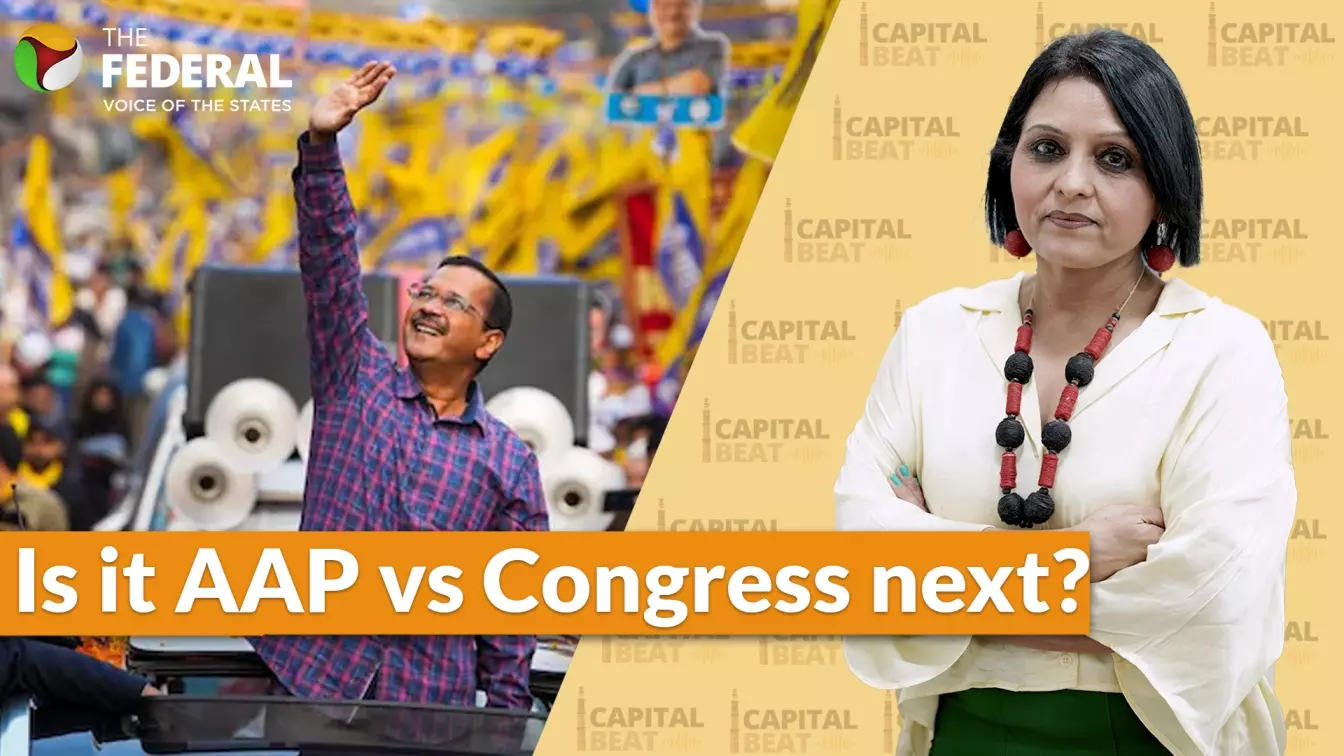
Can AAP emerge as the third force after BJP and Congress? I Discussion
Panel discusses AAP's recent bypoll victories in Punjab and Gujarat, debating if they signal genuine growth or temporary political shifts

In this episode of Capital Beat, senior journalists Jagdeep Singh Sindhu, Pravin Ahir, and Congress supporter Akash Deep Muni joined the discussion on Aam Aadmi Party (AAP)'s recent bypoll victories in Punjab and Gujarat. The panel examined whether these wins signal a genuine resurgence of AAP or merely reflect temporary political dynamics, and what this means for the Congress in the two states.
'Victory no indicator of political strength'
The discussion began with Muni highlighting that bypoll victories, while helpful, should not be seen as indicators of long-term political strength. “Bypolls are normally won by the ruling party,” he said, adding that AAP retaining its Gujarat seat and winning Ludhiana West was not extraordinary.
He argued, “If AAP had secured all 13 Lok Sabha seats in Punjab, that would have been historic. But after 90 Assembly seats, they only got three Lok Sabha seats.”
Watch | Kejriwal or Sisodia? Who is AAP's Rajya Sabha pick from Punjab
Muni criticised AAP’s ideological shift, saying the party had abandoned its earlier inclusive and middle-class-oriented platform. He pointed to soft Hindutva tactics like temple visits and religious slogans as a reason voters might now prefer BJP over AAP, stating, “If people want Hindutva, why not vote directly for BJP?”
He also questioned the party’s choices for Rajya Sabha nominations and its credibility, claiming, “Tickets went to businessmen and people with BJP links, not loyal AAP workers.”
Gujarat’s ground realities
Ahir provided a detailed view from Gujarat. He noted that Congress has traditionally struggled in places like Visavadar, so AAP’s win there is not as significant as it may appear. “AAP gains votes where Congress is inactive — and that is the real danger for Congress,” he said.
He said that AAP’s presence has often helped BJP consolidate power, citing Gandhinagar municipal elections as an example. He argued that AAP has damaged Congress by splitting votes, indirectly aiding BJP, and warned, “If Congress doesn’t wake up, AAP and BJP will together squeeze it out in Gujarat.”
Ahir also observed that AAP’s success in Saurashtra, where it won several Assembly seats, is due more to Congress’s failures than AAP’s strength. “Voters are looking for alternatives because Congress has let them down at the grassroots,” he concluded.
Also read: Bypolls results: Why it's no good news for Congress and INDIA Bloc
Punjab's shifting mood
Sindhu took a critical stance on AAP’s performance in Punjab. He said, “Whatever AAP promised has failed. People are disappointed.” Citing issues from the unfulfilled promise of tackling drug peddlers to the lack of new medical colleges, he argued that AAP’s governance has not lived up to its claims.
Sindhu asserted that AAP has created new divisions in society, between rural and urban communities and among different voter groups. He added, “The initial hope that AAP represented something different has faded. Now, they are exposed as just another party making empty promises.”
He described AAP as opportunistic, capitalising on voter dissatisfaction and Congress’s internal divisions, but lacking lasting appeal. “Wherever there is a local leadership fight, they insert themselves. But there’s no ideological backbone,” he said.
The road ahead
The panel agreed that while AAP may pose challenges for Congress, especially in Gujarat, its future depends on sustained credibility and delivery on promises. Muni summed up, “The love for AAP is waning. Their credibility is what matters now, and that’s slipping.”
Also read: Kejriwal on AAP's bypoll wins: 'Semi-final to 2027'
Ahir warned that if Congress does not regroup effectively, AAP could continue to eat into its vote share, indirectly benefiting the BJP. Sindhu, meanwhile, was firm that in Punjab, “AAP’s graph is on the decline, and they won’t be able to repeat their earlier success.”
The content above has been generated using a fine-tuned AI model. To ensure accuracy, quality, and editorial integrity, we employ a Human-In-The-Loop (HITL) process. While AI assists in creating the initial draft, our experienced editorial team carefully reviews, edits, and refines the content before publication. At The Federal, we combine the efficiency of AI with the expertise of human editors to deliver reliable and insightful journalism.

